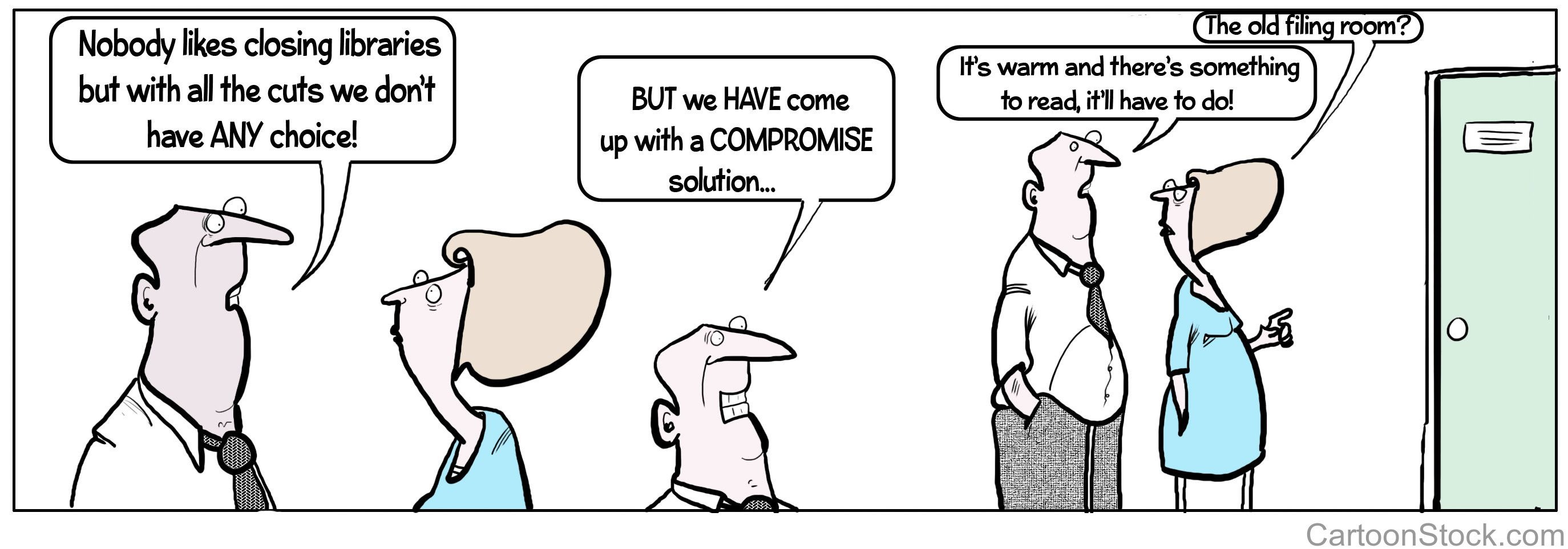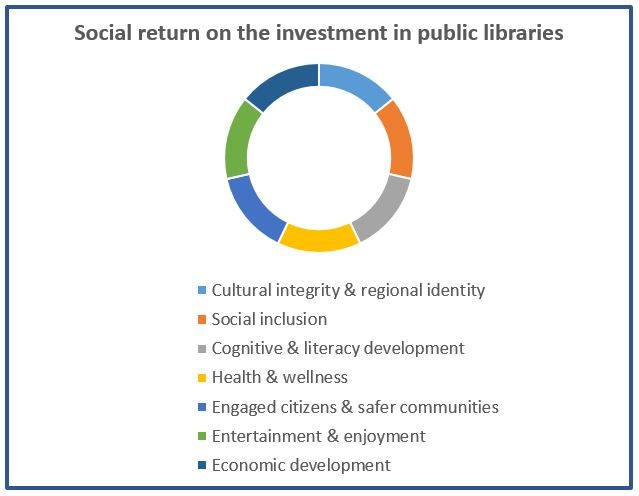The thinking of Comrade F. Dobler from the early 20th century remains relevant and even prescient: those who need open access to information may be those who are fundamentally excluded from public libraries.

The shock doctrine: Cuts to OLS – N an onslaught on public services
Open for all? offers a “think piece” rather than an intellectual analysis. Columnist John Pateman shares his personal observations on issues, and his columns are designed to promote discussion and professional debate. He has arrived at his conclusions after 40 years of working in public libraries of/in all types and locations.
The provincial government has made a 50% cut to the funding that it provides to Ontario Library Service – North (OLS – N). This loss of funding is already sending shock waves through our library infrastructure, and they will have both short- and long-term effects on the delivery of essential public services and, ultimately, on the public good.
Staff, programs, community connectivity lost
The first wave can be felt in terms of the downsizing of OLS – N staff. With fewer dollars to spend, the service has gone from 11 to 5.5 FTE (full-time equivalent) positions, and this is capacity and expertise that northern Ontario libraries cannot afford to lose.
The revised OLS – N budget will also cancel a number of programs and services. For example, there will not be any annual in-person consulting visits by OLS – N staff. While virtual consultation options will be available, these are no substitute for face-to-face meetings. OLS – N staff must be able to personally and directly experience public libraries to tailor services to meet community needs.
OLS – N will also discontinue website maintenance. Small rural and Indigenous libraries are particularly dependent on this service, and their websites will quickly deteriorate or will be discontinued. This outcome will exacerbate the problem of maintaining connectivity in remote northern communities. The threat to connectivity will also be compounded by the withdrawal of technology advice from OLS – N.

Another victim of the cuts is the OLS – N fall conference, which provides a unique opportunity for library workers in the North to get together, network and exchange ideas and best practices. Such conversations and exchanges lead to more efficient ways of working, which (ironically) is exactly what the Ford government hopes to achieve by cutting funding; in fact, these budget reductions will make libraries in the North more inefficient because we all will seek to reinvent the wheel.
Good governance will also be damaged when the number of OLS – N board meetings is reduced from four in-person to two in-person and two virtual per year. All OLS – N staff travel has also been reduced, and so there will be a greater reliance on virtual meetings and telephone calls to provide service. A lack of face-to-face interactions will make the challenges of physical isolation even greater.
Fight back: Libraries are good investments
These cuts will have a devastating impact on small rural and First Nation libraries, which are heavily reliant on OLS – N services. Cuts will also impact the communities these libraries serve. Libraries across the North have banded together in solidarity to resist these reductions. Thunder Bay Public Library (TBPL) will fight back with a coordinated campaign involving library workers, trade unions, local communities and other agencies, which have also seen their budgets reduced. TBPL has over 30,000 active members and more than three million interactions with our community every year. You can write to your MPP to protest these cuts, and you can sign the petition at any branch library, or online on the TBPL website.
If TBPL attempts to absorb these cuts and to manage services with half the funding, we will be sending the wrong message to the Ford government, which will come looking to reduce even more services. Despite reassurances, government officials, no doubt, already have their eyes on the funding provided directly to public libraries. TBPL receives around $200,000 in annual provincial funding.

TBPL has evidence of the economic benefits of public libraries. A social return on investment (SROI) study demonstrates that for every dollar invested in TBPL, there is $6.70 in economic benefits to the community. Ironically, this SROI model was developed and promoted by OLS – N.
There is also evidence of the social benefits of public libraries. In the U.K., closing hundreds of libraries and laying off thousands of library workers has had a negative impact on crime, health, education and teenage pregnancy, addiction and obesity. Libraries are the social glue that holds communities together.
Neo-liberal shock therapy a substantive threat
Despite all this evidence from at home and abroad, the Ford government will not listen to reasoned arguments. Rob Ford went looking for the “gravy” at the Toronto Public Library (he didn’t find any), and now, Doug Ford is making these cuts in the name of austerity politics.
But this issue is not really about economics and the smoke and mirrors of balanced budgets and managing deficits. This issue is about neo-liberal ideology and what Naomi Klein called The shock doctrine. It is the mantra of “private sector, good; public sector, bad.” It is a calculated and sustained onslaught on public services.
________________________
John Pateman is the CEO of the Thunder Bay Public Library.
Slider image by Thomas Kelley on Unsplash
